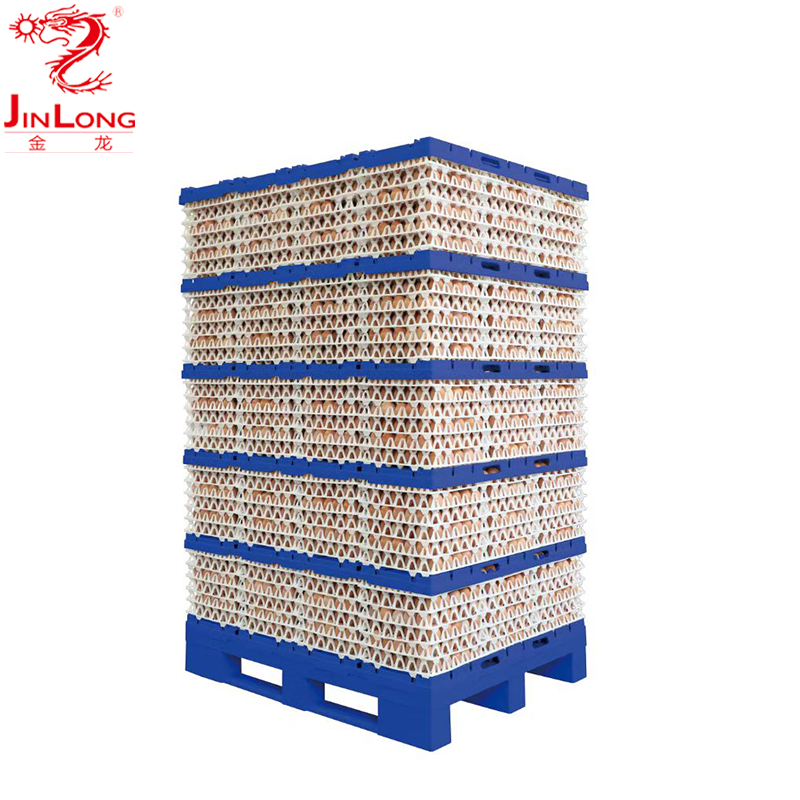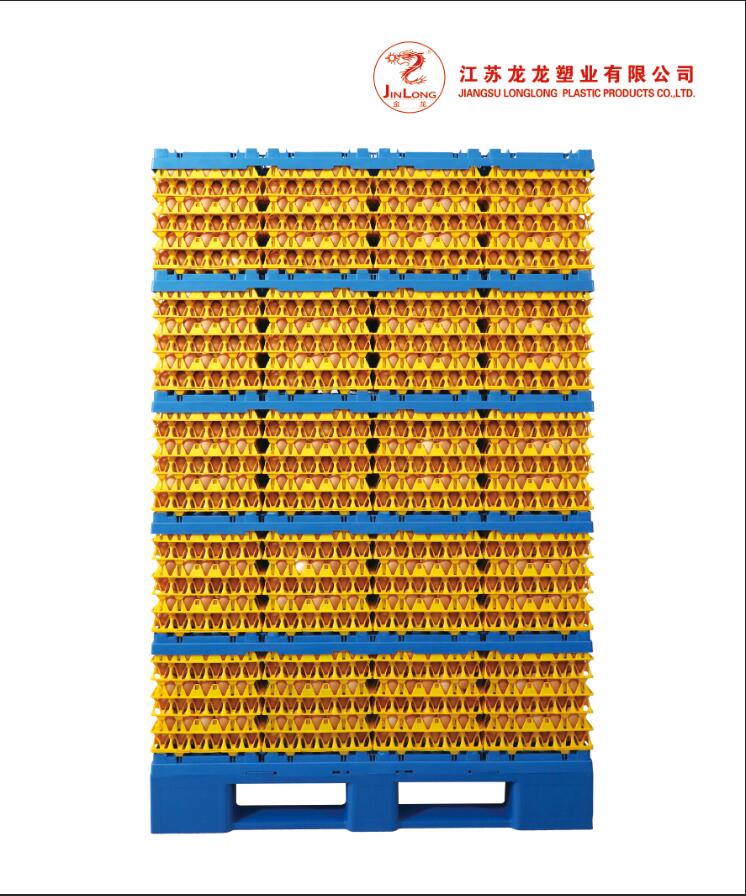Egg trays, also known as egg pallets or egg crates, are an essential component of the egg industry. These trays are designed to safely transport and store eggs, ensuring that they remain intact and undamaged throughout the supply chain. From the farm to the grocery store, egg trays play a crucial role in preserving the quality of eggs and facilitating efficient distribution. In this blog, we will explore the versatility of egg trays and their significance in the egg production and distribution process.

Egg trays come in various sizes and materials, catering to the diverse needs of egg producers and distributors. Whether it's a pallet of eggs destined for a large supermarket chain or a smaller quantity for a local market, egg trays are designed to accommodate different volumes of eggs. The sturdy construction of these trays provides protection against breakage, minimizing the risk of damage during handling and transportation.
One of the key advantages of egg trays is their stackability. When loaded onto pallets, these trays can be efficiently organized and transported in bulk, optimizing space and streamlining logistics. This not only benefits the producers and distributors by reducing storage and transportation costs but also ensures that eggs are delivered to their destination in optimal condition.
The design of egg trays also facilitates proper airflow, which is crucial for preserving the freshness of the eggs. Adequate ventilation helps regulate the temperature and humidity levels within the trays, preventing the build-up of moisture and potential spoilage. This is particularly important during storage and transit, where maintaining the quality of the eggs is paramount.
In addition to their functional benefits, egg trays also serve as a branding and marketing tool for egg producers. Customized trays with the producer's logo and information can enhance brand visibility and create a distinct identity in the market. Furthermore, the use of high-quality, well-designed trays can convey a message of professionalism and commitment to quality, influencing consumer perception and purchasing decisions.
From a sustainability perspective, egg trays made from recyclable materials contribute to environmental responsibility within the egg industry. By opting for eco-friendly materials and promoting recycling initiatives, producers and distributors can minimize their environmental footprint and align with consumer preferences for sustainable packaging solutions.
The versatility of egg trays extends beyond their primary function of egg storage and transportation. These trays can also be repurposed for various creative and practical uses, contributing to their sustainability and value beyond the initial use. From organizing small items in the household to serving as seedling trays in gardening, the durable and modular nature of egg trays makes them a versatile resource for repurposing and upcycling.
In conclusion, egg trays play a multifaceted role in the egg production and distribution process. Their functionality, stackability, and ventilation properties make them indispensable for ensuring the safe and efficient transport of eggs. Furthermore, their potential for branding, sustainability, and repurposing adds layers of value to their role in the industry. As the demand for high-quality eggs continues to grow, the significance of egg trays in maintaining the integrity and freshness of eggs cannot be overstated. Whether it's a pallet of eggs destined for a supermarket shelf or a smaller quantity for a local market, egg trays are the unsung heroes of the egg industry, quietly but effectively preserving the golden goodness within.

Post time: Mar-21-2024
